Understanding Triggers to Improve Sales Skills
You have a busy day planned. Your to-do list is filled with important activities that will take you the rest of the day. You sit down at your desk and prepare to start knocking things off the list. But, first, you have a question for Google. “Just a quick search,” you think to yourself. “It’ll just take a few minutes.” Three hours later, and you have completely forgotten why you went online in the first place, and your to-do list has gone by the wayside. Does this sound familiar? In today’s era especially, we are more distracted by triggers than ever before. Marshall Goldsmith, interviewed by John Golden, discusses triggers and how to avoid them.
This expert sales interview explores understanding triggers, including:
- Defining triggers
- Identifying triggers
- A daily activity to better understand your triggers
What is a Trigger?
A trigger is any stimulus that might impact behavior. This could be a sight, a sound, a word, or anything that influences what we are doing. Sometimes these triggers push us towards becoming the person that we want to be, but most of the time, the opposite is true, and they distract us from our goals. Goldsmith wrote a book called “Triggers: Creating Behavior That Lasts — Becoming the Person You Want to Be.” Triggers are inevitable. They constantly impact the way that we function, both personally and professionally.
Identifying Triggers:
“Understand triggers that may be holding you back from becoming the person that you want to be,” said Goldsmith. Having insight into how your triggers positively and negatively affect your behaviors will put you one step closer to using triggers for your benefit. This process takes discipline, though. “We struggle to identify and understand triggers because we don’t see the triggers as a trigger,” said Goldsmith. “We journey through life without learning the impact that our environment has on us, but the environment is very powerful. Without meaning to, we let our environment control us. It’s all triggers.”
Daily Question Process:
“Why don’t we become the people we want to be,” said Goldsmith. “As we journey through life we have these visions of who we are, and even on a day to day basis, we rarely live up to these goals.” Goldsmith provides an easy, daily task to help live up to these goals and increase self-awareness around triggers, and make negative triggers easier to identify and avoid. It takes four minutes, costs nothing, and will help you get better at almost anything. It sounds like it’s too good to be true, but the people who use this daily understand that it works. In one column, list everything that is important to you in question form. Each day of the week, you give yourself a score on how well you did each thing that was important to you. “If you do this every day, you learn very quickly that life is incredibly easy to talk, but it’s incredibly difficult to live. When you do this activity, don’t look at your talking values, which are very pretty, look at your living values, which are not so pretty.”
Selecting Your Questions:
For example, if it’s important to you that you have a productive day, instead of clicking around on the internet for three hours, you might write down: “Did I do my best to be productive today?” At the end of the day, when you reflect on your productivity and give yourself a score, you might notice that you were triggered by online distractions that pulled you away from your goal. The next day, the idea is that you will be aware of the trigger and can avoid it to keep you on your goal of being productive. Some other top questions to ask yourself are: 1) Did I do my best to set clear goals? 2) Did I do my best to make progress towards achieving my goals? 3) Did I do my best to find meaning, vs someone else creating meaning for me? 4) Did I do my best to be happy? 5) Did I do my best to build positive relationships? 6) Did I do my best to be fully engaged? “If you look at the research, it’s amazing,” said Goldsmith. “Ask these six questions every day, and a huge majority of the people say that they get better.”
To learn more about understanding triggers, and applying them to your professional role as a salesperson, watch the entire expert sales interview.
About our Host:
John is the Amazon bestselling author of Winning the Battle for Sales: Lessons on Closing Every Deal from the World’s Greatest Military Victories and Social Upheaval: How to Win at Social Selling. A globally acknowledged Sales & Marketing thought leader, speaker, and strategist. He is CSMO at Pipeliner CRM. In his spare time, John is an avid Martial Artist.


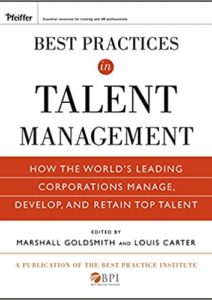
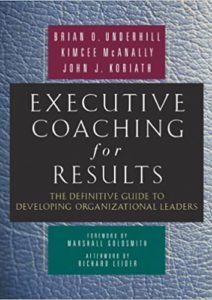
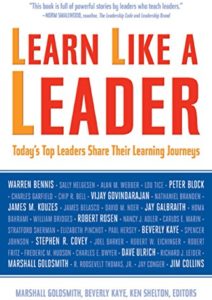
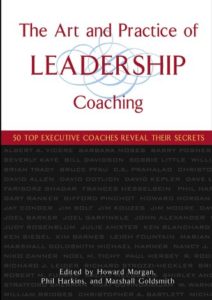
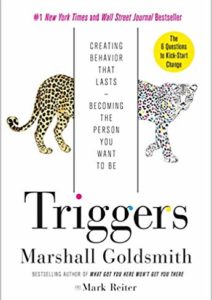
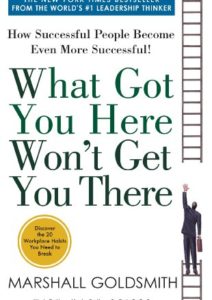
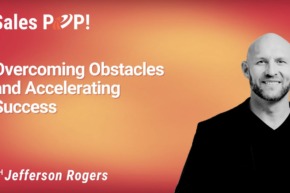

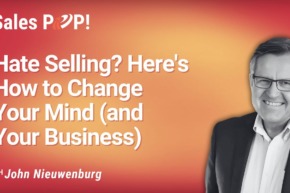


Comments